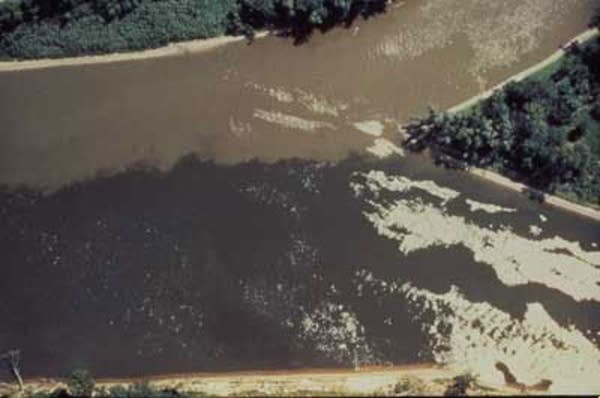Environmental groups launch studies of Mississippi River
Go Deeper.
Create an account or log in to save stories.
Like this?
Thanks for liking this story! We have added it to a list of your favorite stories.

Four conservation and agriculture groups said Monday they'll launch a new three-year partnership to study reducing agricultural runoff into the Mississippi River.
The Nature Conservancy will study four upper Mississippi watersheds, including the Root River in Minnesota, the Pecatonica River in Wisconsin, the Boone River in Iowa and the Mackinaw River in Illinois. The group also will work with farmers to reduce agricultural runoff.
The Iowa Soybean Association will conduct research on the Boone and Raccoon rivers. Delta Wildlife will work to reduce runoff on about 1,000 farms in the Yazoo-Mississippi Delta region, which includes 4 million acres in northwestern Mississippi. The National Audubon Society will encourage people throughout the Mississippi watershed to improve water quality and habitat for birds and other wildlife.

St. Louis agricultural company Monsanto will back the project with $5 million. About $3 million will go to the Nature Conservancy. Another $1.5 million will go to Delta Wildlife.
Turn Up Your Support
MPR News helps you turn down the noise and build shared understanding. Turn up your support for this public resource and keep trusted journalism accessible to all.
The studies could help reduce nutrients that contribute to a 8,000 square-mile dead zone in the Gulf of Mexico, the groups said.
The zone is largely caused by agricultural fertilizer running off fields, into the Mississippi River and then into the Gulf. Nitrogen and phosphorus in the runoff has reduced oxygen in the zone to a level too low to support marine life.
Delta Wildlife aims to reduce runoff including phosphorus by 62 percent. The group said it doesn't have a hard goal on nitrogen reduction because the science there is still developing.
The other groups haven't set pollution reduction goals, saying they're dealing with a broad landscape up and down the Mississippi. Different regions require different techniques, and much depends on farmer participation, they said.
Roger Still, vice president of the National Audubon Society's Mississippi River Initiative, said the studies' main objective is to gather data about effective techniques and then use them.
(Copyright 2008 by The Associated Press. All Rights Reserved.)




